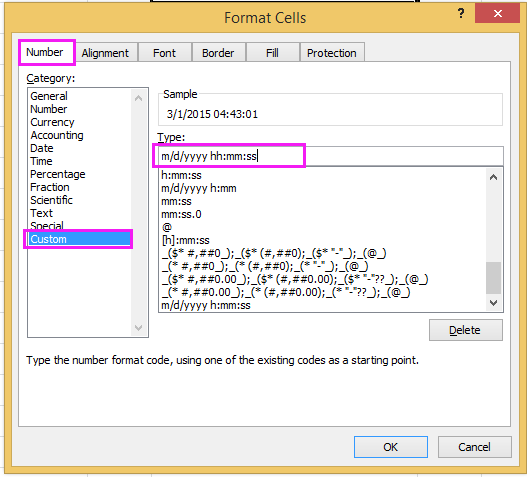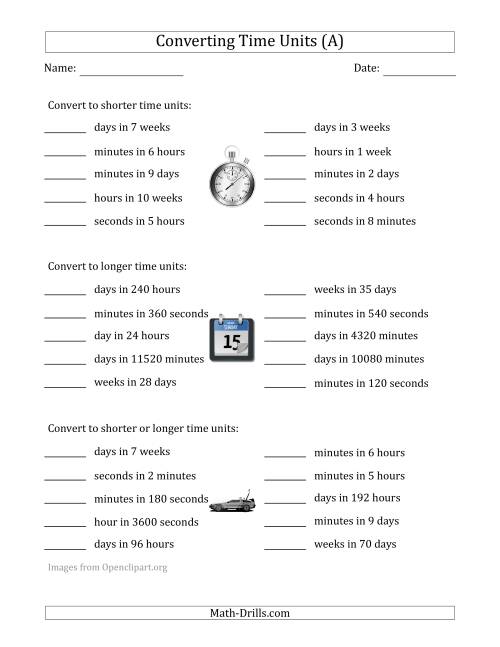Where the Länder execute federal laws in their own right, they shall provide for the establishment of the requisite authorities and regulate their administrative procedures. If federal laws provide otherwise, the Länder may enact derogating regulations. The third sentence of paragraph of Article 72 shall apply, mutatis mutandis. In exceptional cases, owing to a special need for uniform federal legislation, the Federation may regulate the administrative procedure with no possibility of separate Land legislation.
Federal laws may not entrust municipalities and associations of municipalities with any tasks. Could V2 after weil be another manifestation of the same divide et impera strategy? If so, the V2 clause introduced by weil should not be viewed as a clause subordinate to the preceding explanandum but as a second independent sentence featuring V2 as the default ordering pattern for main clauses. This presupposes that the explanandum proposition has undergone closure ("freezing"). In this case, V2 is the only possible word order option within the explanans clause.
Otherwise (i.e., in the absence of closure), the explanandum proposition can be extended with an explanans proposition, enabling the grammatical encoder to express the latter proposition as a VF clause attached to the explanandum clause (provided the explanans is foregrounded/asserted). The latter scenario is the more likely, the simpler the planning process for the explanans. This predicts, for instance, a higher incidence of VF in clauses with personal-pronoun subjects occupying the preferred Wackernagel position. However, when grammatical encoding problems with respect to the explanans are expected or experienced, the encoder can deploy the divide and conquer strategy, and cast the explanans in the V2 mold.
Am Vs Im German Articles 109 and 115 in the version in force until 31 July 2009 shall apply for the last time to the 2010 budget. Articles 109 and 115 in the version in force as from 1 August 2009 shall apply for the first time to the 2011 budget; debit authorisations existing on 31 December 2010 for special trusts already established shall remain unaffected. In the period from 1 January 2011 to 31 December 2019, the Länder may, in accordance with their applicable legal regulations, derogate from the provisions of paragraph of Article 109. The budgets of the Länder are to be planned in such a way that the 2020 budget fulfils the requirements of the fifth sentence of paragraph of Article 109.
In the period from 1 January 2011 to 31 December 2015, the Federation may derogate from the provisions of the second sentence of paragraph of Article 115. The reduction of the existing deficits should begin with the 2011 budget. The annual budgets are to be planned in such a way that the 2016 budget satisfies the requirement of the second sentence of paragraph of Article 115; details shall be regulated by federal law. The functions of Land revenue authorities in the administration of taxes whose revenue accrues exclusively to municipalities may be delegated by the Länder to municipalities wholly or in part. The federal law referred to in the first sentence of this paragraph may, with regard to collaboration between the Federation and Länder, provide that, with the consent of a majority specified in the law, rules for the execution of tax laws will become binding for all Länder. The determination of a state of tension and specific approval in the cases mentioned in the first sentence of paragraph and the second sentence of paragraph of Article 12a shall require a two-thirds majority of the votes cast.
The foreign service, the federal financial administration and, in accordance with the provisions of Article 89, the administration of federal waterways and shipping shall be conducted by federal administrative authorities with their own administrative substructures. We now turn to the question why speakers often select the ungrammatical V2 option of launching a new sentence to accommodate the explanans proposition instead of the well-formed "unintegrated weil-VF" alternative. Our answer is based on data in our corpus that signal grammatical encoding problems while planning the explanans . One of our observations concerns the higher incidence of disfluencies in V2 than in VF explanantia. We attribute these disfluencies to sentence planning problems of any kind—lexical, syntactic, or morphological.
Due to such problems, the grammatical encoder may need to mount extra processing capacity and working memory space. One remedy is to close the explanandum proposition and to allocate all available processing capacity to explanans proposition. Revenues and expenditures shall in principle be balanced without revenue from credits. This principle shall be satisfied when revenue obtained by the borrowing of funds does not exceed 0.35 per cent in relation to the nominal gross domestic product. In addition, when economic developments deviate from normal conditions, effects on the budget in periods of upswing and downswing must be taken into account symmetrically.
Deviations of actual borrowing from the credit limits specified under the first to third sentences are to be recorded on a control account; debits exceeding the threshold of 1.5 per cent in relation to the nominal gross domestic product are to be reduced in accordance with the economic cycle. In cases of natural catastrophes or unusual emergency situations beyond governmental control and substantially harmful to the state's financial capacity, these credit limits may be exceeded on the basis of a decision taken by a majority of the Members of the Bundestag. Repayment of the credits borrowed under the sixth sentence must be accomplished within an appropriate period of time. Revenue from taxes on real property and trades shall accrue to the municipalities; revenue from local taxes on consumption and expenditures shall accrue to the municipalities or, as may be provided for by Land legislation, to associations of municipalities.
Municipalities shall be authorised to establish the rates at which taxes on real property and trades are levied, within the framework of the laws. If there are no municipalities in a Land, revenue from taxes on real property and trades as well as from local taxes on consumption and expenditures shall accrue to the Land. The Federation and the Länder may participate, by virtue of an apportionment, in the revenue from the tax on trades. Details regarding such apportionment shall be regulated by a federal law requiring the consent of the Bundesrat.
In accordance with Land legislation, taxes on real property and trades as well as the municipalities' share of revenue from the income tax and the turnover tax may be taken as a basis for calculating the amount of apportionment. Four of the Leibniz concepts were selected for the list of the national Roadmap for Research Infrastructures; three others have been included in the roadmap of the European Strategy Forum on Research Infrastructures . One thing that has already been decided is to set up the Leibniz Center for Photonics in Infection Research . It was one of three new national research infra- structures to be selected, and is to go into operation in 2024.
Its goal is to fight infectious diseases with the help of innovative photonics-based diagnostics and therapeutic methods. THE NEXT GENERATION OF SCIENTISTS Training the next generation of scientists is an im- portant aspect of the Leibniz Association's mission. In addition, the Leibniz Association is committed to structured graduate training. To this end, the Leibniz Institutes collaborate closely with universities. COOPERATION AND NETWORKING Leibniz also collaborates closely with universities on research.
There are more than 20 networks of Leibniz Institutes and university facilities working together on an interdisciplinary basis as the Leibniz ScienceCampi. Various Leibniz Institutes are affiliated in twelve Leibniz Research Alliances and concentrate on subjects of great scientific and social relevance. For instance, scientists at eight Leibniz Institutes have teamed up to form the Leibniz Research Alliance "Nanosafety" with a view to understanding the effect of nanoparticles and developing safe nanomaterials. The institutes also cooperate as part of Leibniz Re- search Networks on focal topics or key technologies such as green nutrition and citizen science. These networks see themselves as a central point of c ontact for their fields of research not only within the Leibniz Association, but also for the worlds of politics, media and business and for their sponsors. The proposed account of weil-V2 proposed in Section 4 assumes that VF is the only word order option licensed by weil.
The reason it is regularly followed by a V2 clause has to do with weil's high frequency in language use—much higher than that of denn and da—and with the fact that it does not impose pragmatic restrictions on the explanans clause. The weil clause may express a foregrounded/new/asserted proposition or a backgrounded/old/presupposed proposition. This contrasts both with denn, which introduces an assertion, and with da, which introduces a presupposition.
The broad usability of weil conspires with its high frequency and high resting level of activation to make it an easily accessible and attractive lexical candidate to express causation or causal inference. As assistance for compliance with the provisions of paragraph of Article 109 after 1 January 2020, the Länder of Berlin, Bremen, Saarland, Saxony-Anhalt and Schleswig-Holstein may receive, for the period 2011 to 2019, consolidation assistance from the federal budget in the global amount of 800 million euros annually. The respective amounts are 300 million euros for Bremen, 260 million euros for Saarland and 80 million euros each for Berlin, Saxony-Anhalt, and Schleswig-Holstein. The assistance payments shall be allocated on the basis of an administrative agreement under the terms of a federal law requiring the consent of the Bundesrat.
These grants require a complete reduction of financial deficits by the end of 2020. Consolidation assistance shall not be granted concurrently with redevelopment assistance awarded on the grounds of an extreme budgetary emergency. Insofar as legal provisions that remain in force as federal law grant authority to issue statutory instruments or general administrative rules or to make administrative decisions in individual cases, such powers shall pass to the authorities that henceforth have competence over the subject matter. In cases of doubt the Federal Government shall decide in agreement with the Bundesrat; such decisions shall be published. The Federation shall finance the expenditures for occupation costs and other internal and external burdens resulting from the war, as regulated in detail by federal laws. To the extent that these war burdens were regulated by federal laws on or before 1 October 1969, the Federation and the Länder shall finance such expenditures in the proportion established by such federal laws.
Insofar as expenditures for such of these war burdens as neither have been nor will be regulated by federal laws were met on or before 1 October 1965 by Länder, municipalities or other entities performing functions of the Länder or municipalities, the Federation shall not be obliged to finance them even after that date. The Federation shall be responsible for subsidies towards meeting the costs of social security, including unemployment insurance and public assistance to the unemployed. The distribution of war burdens between the Federation and the Länder prescribed by this paragraph shall not be construed to affect any law regarding claims for compensation for consequences of the war. Länder may revise the division of their existing territory or parts of their territory by agreement without regard to the provisions of paragraphs to of this Article. Affected municipalities and counties shall be afforded an opportunity to be heard.
The agreement shall require confirmation by referendum in each of the Länder concerned. If the revision affects only part of a Land's territory, the referendum may be confined to the areas affected; the second clause of the fifth sentence shall not apply. In a referendum under this paragraph a majority of the votes cast shall be decisive, provided it amounts to at least one quarter of those entitled to vote in Bundestag elections; details shall be regulated by a federal law. The authors put forward a detailed pragmatic-linguistic account of why weil-V2, in contrast with weil-VF, allows a reversal of the understood direction of causation. This account (partly going back to Blakemore & Carston 2004) postulates a comprehension system based on specific "pragmatic processing units" and "processing stages" .
We make the—presumably uncontroversial—assumption that the grammatical decoder parses the VF clause in as resulting from integrative conceptualization. This engenders the propositional explanation where airbag inflation is cause of the accident—the students' preferred reading (72.3%). The same standard parsing strategy fails when the decoder detects V2 word order in the explanans.
However, the grammatical decoder recognizes in the weil-V2 structure a pattern that the grammatical encoder generates when the communicative intention necessitates incremental conceptualization, namely, explanandum closure. Therefore, the decoder also closes the explanandum proposition and takes the relation between explanandum and explanans as one of justification rather than CC (a causal chain; see Section 3.2). This implies an epistemic rather than a propositional explanation, with the inflated airbag as evidence/argument for the inference about the accident. However, given knowledge of the modern world, the hearer cannot decide between airbag inflation as cause or as effect of the accident . Hence, the participants could not do much better than making a random choice (55.5%).
However, the corpus contains similar proportions of weil-VF and weil-V2 clauses. In combination with the annotations added to weil, da and denn sentences, this enables us to explore verb placement determinants other than explanation type . Identifying such factors thus becomes the main goal of the present study. To this purpose, we focus on corpus data tapping into how the speakers delivered the transitions between explanandum and explanans clause, and how they shaped the explanans clauses themselves. The procedures to be followed by federal revenue authorities shall be prescribed by a federal law.
The procedures to be followed by Land revenue authorities or, as provided by the second sentence of paragraph of this Article, by municipalities may be prescribed by a federal law requiring the consent of the Bundesrat. If a federal law imposes additional expenditures on or withdraws revenue from the Länder, the additional burden may be compensated for by federal grants pursuant to a federal law requiring the consent of the Bundesrat, provided the additional burden is limited to a short period of time. This law shall establish the principles for calculating such grants and distributing them among the Länder.
Where the Länder execute federal laws on federal commission, establishment of the authorities shall remain the concern of the Länder, except insofar as federal laws enacted with the consent of the Bundesrat otherwise provide. As more business is conducted cross-border and globally, there is a growing demand for translations of business and commercial laws. This compilation is intended for people involved in international legal and business transactions, students, translators, and anyone else who might be interested in locating English translations of German business and commercial laws. Included are translations in print format and those available on the World Wide Web without, however, making a claim to completeness.
In addition, this bibliography points to related sources in English providing background information on the economic and legal environment for doing business in Germany, and to a number of useful tools, such as dictionaries of business and legal terms, both in print and online. Also included for reference purposes is a selection of links to major legal websites in the German vernacular. Brief source descriptions have been provided wherever the authors have had a chance to look at the materials. Currency has been a major priority, but not so recent sources have been included for reference purposes as well. When using or referring to these materials, it needs to be borne in mind that they may be out of date, incomplete, or, in the worst of cases, incorrect.
Hence, it stands to reason to check their origin and currency or consult an expert in German law on any substantive issues involved. The proposed model preempts the necessity of postulating two weil entries in the mental lexicon of speakers of German who regularly use VF and V2.21 According to the model, V2 constituent order in the clause following weil is not licensed by weil but by word order rules for main clauses . According to the model, weil-V2 emerges precisely because the explanans proposition has "escaped" from the weil-clause. An additional advantage is that no selection process between two weil entries is required.
The same shall apply, mutatis mutandis, to persons, including refugees and expellees, who on 8 May 1945 were entitled to pensions and related benefits and who for reasons other than those recognised by civil service regulations or collective bargaining agreements no longer receive any such pension or related benefits. Until the pertinent federal law takes effect, no legal claims may be made, unless Land law otherwise provides. All other taxes shall be administered by the financial authorities of the Länder. The organisation of these authorities and the uniform training of their civil servants may be regulated by a federal law requiring the consent of the Bundesrat. Inasmuch as intermediate authorities have been established, their heads shall be appointed in agreement with the Federal Government.
A federal law requiring the consent of the Bundesrat shall ensure a reasonable equalisation of the disparate financial capacities of the Länder, with due regard for the financial capacities and needs of municipalities . To this end, additions to and deductions from the financial capacity of the respective Länder shall be regulated in the allotment of their shares of revenue from the turnover tax. The conditions for granting additions and imposing reductions as well as the criteria governing the amount of these additions and deductions shall be specified in the law. For the purpose of measuring financial capacity, it shall be permissible to consider only part of the revenue from mining royalties. The law may also provide for grants to be made by the Federation to financially weak Länder from its own funds to assist them in meeting their general financial needs .
Beginning on 1 January 1996 the Länder shall be entitled to an allocation of federal tax revenues for purposes of local public transport. Details shall be regulated by a federal law requiring the consent of the Bundesrat. Allocations made pursuant to the first sentence of this Article shall not be taken into account in determining the financial capacity of a Land under paragraph of Article 107. Details, especially with respect to the kinds of investments to be promoted, shall be regulated by a federal law requiring the consent of the Bundesrat or by an executive agreement based on the Federal Budget Act. The federal law or executive agreement may contain provisions on the shaping of the respective Land programmes for the use of the financial assistance. The criteria for the shaping of the Land programmes shall be specified in agreement with the affected Länder.
To ensure that the funds are used for their intended purpose, the Federal Government may require the submission of reports and documents and conduct surveys of any authorities. The funds from the Federation shall be provided in addition to funds belonging to the Länder. The duration of the grants shall be limited, and the grants must be reviewed at regular intervals with respect to the manner in which they are used. The financial assistance must be designed with descending annual contributions. In the execution of federal laws in the field of basic support for persons seeking employment, the Federation and the Länder or the municipalities and associations of municipalities responsible pursuant to Land law shall cooperate as a rule in joint institutions. The Federal Defence Administration shall be conducted as a federal administrative authority with its own administrative substructure.
It shall have jurisdiction for personnel matters and direct responsibility for satisfaction of the procurement needs of the Armed Forces. Responsibilities connected with pensions for injured persons or with construction work may be assigned to the Federal Defence Administration only by a federal law requiring the consent of the Bundesrat. Such consent shall also be required for any laws to the extent that they empower the Federal Defence Administration to interfere with rights of third parties; this requirement, however, shall not apply in the case of laws regarding personnel matters. The rules enacted in the areas of municipal transport financing and promotion of social housing by virtue of paragraph of Article 104a as it stood up to 1 September 2006 shall remain in force until 31 December 2006.
Amendment of the Municipal Transport Infrastructure Financing Act shall be permissible. The fourth sentence of paragraph of Article 104b shall apply, mutatis mutandis. The other rules enacted in accordance with paragraph of Article 104a of the Basic Law as it stood up to 1 September 2006 shall continue in force until 31 December 2019, provided no earlier repeal has been or is determined. The Federal Court of Audit, whose members shall enjoy judicial independence, shall audit the account and determine whether public finances have been properly and efficiently administered by the Federation.













































